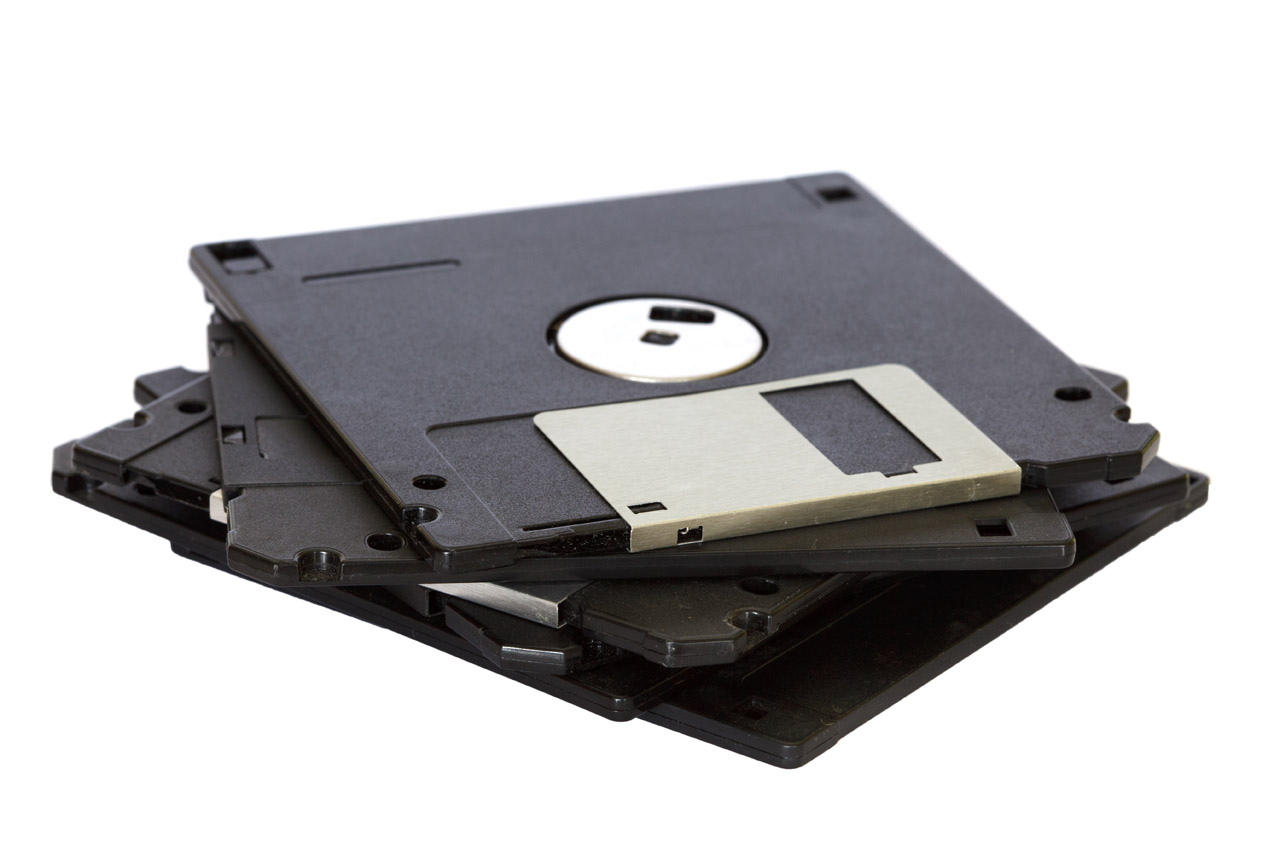Many years ago I needed to convert several old floppy disks – the kind that really were floppy – into the more compact 31/4” disks which were still widely used at the time. The old floppies contained the text of two ill-fated novels I’d written, which were preserved in no other form. The novels had been bought as part of a three-book deal, but the publisher had gone out of business before it could bring them out. My agent couldn’t resell them anywhere: they were like orphans that no one wanted to adopt. There was one exception: a German company which had published several of my previous novels. So I had the German editions of these otherwise shunned novels, but the original drafts in English resided on the antiquated floppies. There was a small PC repair shop on the corner of 14th Street and Seventh Avenue if I recall, one of the many such holes-in-the wall that seemed to be ubiquitous in Manhattan in those days. They were still able to make the conversion. As it turned out, though, a couple of the floppies were irreparably damaged so that a significant portion of the novels couldn’t be transferred to the new format, meaning that if I ever wanted to read the entirety of the novels in the language I had written it in I would have to hire someone to translate my words back into English. And of course, it wouldn’t be what I had written exactly, it would be a translator’s version. The original, or at least a substantial portion of it, had become a victim of a dizzying metamorphosis that renders obsolete media and formats that not so long ago had been the vehicle of choice to bring words, music and film to life.
As Joseph Schumpeter famously said, capitalism, which is in many respects the history of invention, is often characterized by creative destruction. Edison’s phonograph was only one of several devices designed to reproduce sound, but it was far and away the most successful. The demise of the competing devices should be of only academic interest except that people used them to record their speeches, their songs and their poetry. Until and unless these defunct devices can be reverse-engineered the recordings will remain forever lost to us. The danger of information seeping out in transferring information from one format to another has not gone away. On the contrary, it has grown more urgent. This is a source of particular concern to the writer Nicholson Baker who wrote an essay lamenting the losses of information that occur in digitalizing a library’s catalogue, often composed of thousands of methodically typed or handwritten cards. Some information contained on these cards inevitably fails to survive the transition. Errors creep in, resulting in additional distortion. (Character recognition software isn’t perfect. Scans don’t always capture the words faithfully.) It shouldn’t matter (except to the pocketbook) that DVDs replaced videos or that DVD sales have fallen precipitously now that everyone is watching their movies and favorite TV series online, but every time technology takes a leap forward it leaves something behind and sometimes that something is what we will miss when we can’t access it anymore. During the transitional periods, when the old system is being replaced by the new system, the two types of media enjoy an uneasy coexistence like Homo sapiens and Neanderthals. But sooner or later, one type trumps the other. The problem is that we are lulled into thinking that we’ll always have time to make the necessary transferals and replacements but then one day you wake up and you discover you can’t go back. What was recoverable yesterday has become irretrievable. We were told to back everything up on disks. Then as computer memory became cheaper and more bytes could be made to fit into smaller and smaller spaces, we could back our files up on memory sticks we could dangle off a keychain. That was then. Now we can back up our voluminous digital libraries we maintain on smart phones and tablets as well as desktop computers (which themselves are at risk of becoming dinosaurs) by resorting to the Cloud. But clouds, by their very definition, are ephemeral. Some of Amazon’s regional servers, which are leased by a number of companies, have failed twice in recent months, leaving thousands of customers temporarily bereft, data-deprived.
It’s not just because of the acceleration of technological change that accounts for the tendency of information to vanish. The famous Library of Alexandria, the repository of the ancient world’s literature and scholarship, went up in smoke, leaving us staring into a void. Sooner or later something important will be lost and while we’ll have that gnawing feeling that it must have mattered we won’t remember what it was. The only thing we’ll know for sure is that it’s missing and that we’ll never get it back.

